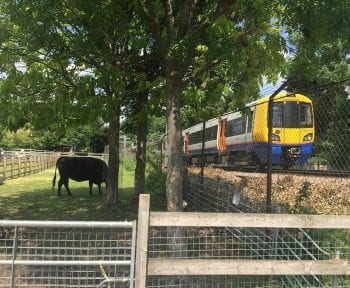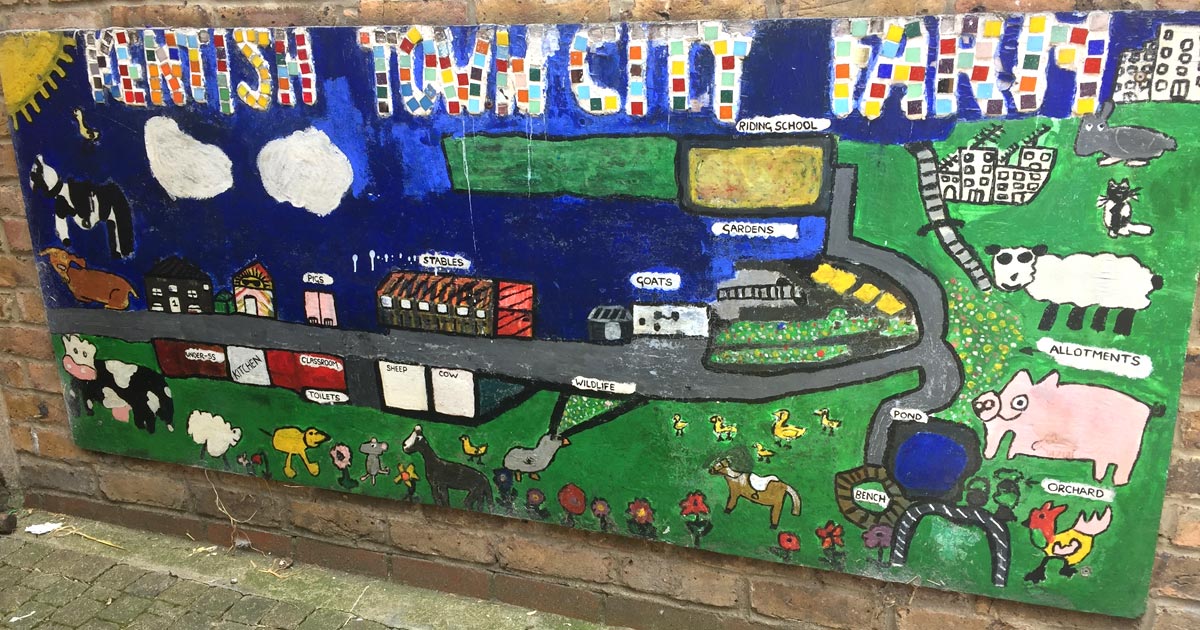I’m not from a farming background, and nobody I knew was agriculturally inclined when I decided to pursue production animal medicine. My family wondered why I would bother “messing about with cows” when I could comfortably work a four-day week petting kittens (their somewhat confused perception of small animal vetting).
There were some not-so-subtle hints that my chosen career path might not be a romanticised Herriot-esque endeavour:
“Why would you want to go and put your hand up a cow’s backside at 3am when you could be a doctor?” I would hear.
“Why would I want to put my finger up an old man’s bum at 3am when I could be a vet, though?” I countered.
I mean, you can’t really argue with that.
Down on the farm
Despite her anti-bovine leanings (no, seriously, she HATES cows), my mum still drove me to and from the city farm where I spent every spare minute outside of school and work.
This farm, a haven in the midst of a built-up residential area, was where I learned almost everything I know about different chicken, sheep and pig breeds; where I learned how to put a head rope on a flighty highland, and where I ended up shoulder deep in all manner of labouring farm animals.
As it was an open farm, I also learned an incredible disconnect exists between agriculture and the children that benefited from it every mealtime.
“Where do chickens come from?” we’d ask, showing groups of children our newest chicks.
“Asdaaaa,” they’d chorus.
It’s one of those things that is a bit funny at the time, but when you think about it, is not really funny at all. A lack of understanding breeds mistrust, mistrust breeds war, and here we are in 2019, and the divide between farming communities and the public is enormous and ever-growing – even without the help of anti-agriculture activists.
Dismissing the ‘snowflake generation’
I was interested to read recently of an Irish farm that decided to close its doors to EMS students without an agricultural background, who farmers branded “snowflakes” for being unnerved by practices on farm.
I can’t comment on the detail, but surely vet students are the last people we should be shutting down discussion over welfare and standards on working farms with? If they saw something they were uncomfortable with, of course that is upsetting to hear – but to shut them out without justifying the practice that bothered them? Where’s the educational value in that?
How do we continue, in all conscience, to say we uphold some of the best animal welfare standards in the world if we cannot either explain ourselves, or hold our hands up and say “actually, there are better ways to go about this”?
I hope vet schools are doing their best to prepare students for farm placements, but I also hope moves exist to support the farmers who provide this valuable experience – between the two sides, a wealth of knowledge exists that can only enhance welfare on farms and students’ understanding of the industry.
Lost opportunities
I’ve said before that the only way we can fight misunderstanding and mistrust is through education, which is why I was saddened to hear of the proposed cuts to Kentish Town City Farm.

Like many open community farms, Kentish Town provides opportunities for work experience that give London-based students a chance at getting into vet schools without having to travel to rural farms at their own expense.
It’s a wonderful learning environment for pre-clinical EMS, and connects the local community to animals. It does not shy away from the fact some animals are pets and some have commercial purpose – and, crucially, it provides opportunities for people with special needs. This is one of the services threatened by the proposed cuts, and I find it outrageous.
Hands off
As vets, we are expected to be able to communicate to clients from all kinds of backgrounds. One of the major forms of exposure I had to people with different backgrounds to my own, and people with special needs and disabilities, was on city farms.
These farms form part of our social development as vet students and humans, so it would be tragic to see them disappear. Kentish Town City Farm, and those of its ilk, shows local children the value of volunteering and responsibility. These farms also promote compassion for animals among people who get no exposure to them in city landscapes.
I would urge anyone who benefited from the presence of a city farm like Kentish Town to check out the Hands Off Our Farm (HOOF) campaign and see how we can come together to support an institution that has supported people like us for decades.
- Find HOOF on Facebook, and support the cause by signing the petition at change.org

Leave a Reply